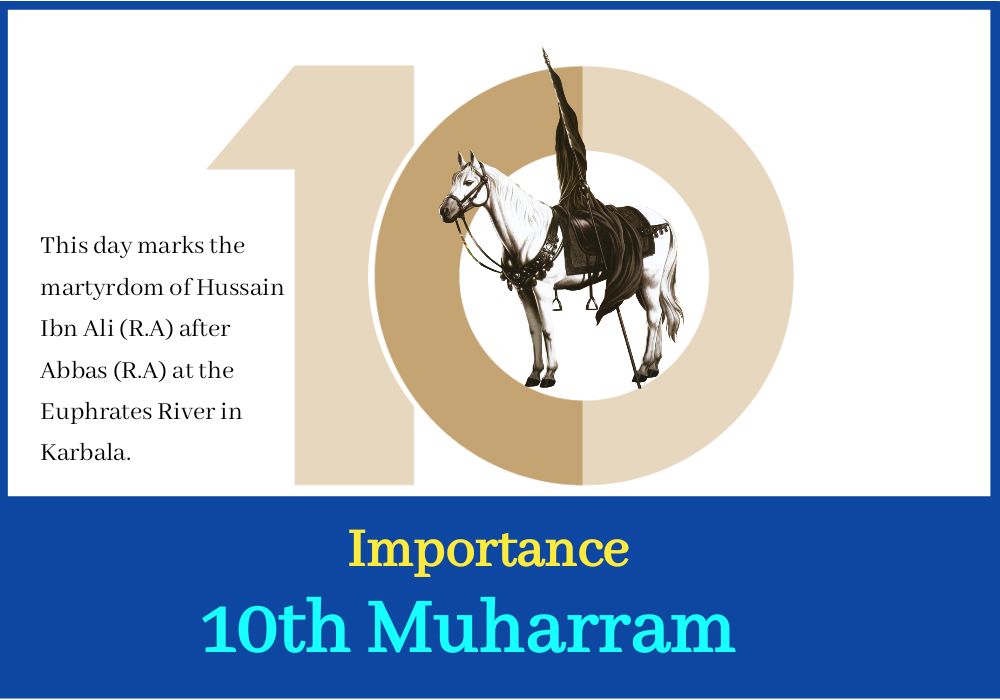The 10th of Muharram holds immense significance in the Islamic calendar, capturing the attention and reverence of Muslims worldwide.
As one of the four sacred months ordained by Allah, Muharram marks a time of reflection and remembrance for believers. However, it is mainly on the 10th day that this month reaches its pinnacle of importance within Islam.
In this article, we will explore why the 10th of Muharram holds such profound meaning in Islamic tradition and delve into the evidence supporting its significance as a day to commemorate and seek spiritual enlightenment.
Unveiling the deep significance behind Islam’s Sacred Day: 10th Muharram!
The 10th of Muharram, also known as Ashura, holds significant importance in Islam for several reasons. Firstly, it marks the day when Prophet Muhammad’s grandson, Imam Hussein, and his companions were martyred in the Battle of Karbala.
This event is deeply mourned by Shia Muslims worldwide as a symbol of sacrifice and resistance against injustice.
Secondly, Ashura is also associated with historical events such as the liberation of Prophet Moses and his followers from Pharaoh’s tyranny.
It is believed that God saved Moses and his people on this day by parting the Red Sea. This story reminds Muslims of God’s power and mercy in delivering His believers from oppression.
Moreover, Ashura is observed differently among Sunni and Shia Muslims. While Shiites commemorate it through mourning processions and self-flagellation to empathize with Imam Hussein’s suffering, Sunnis regard it as a day of fasting to show gratitude for Moses’ deliverance.
Regardless of these differences, the 10th of Muharram remains a momentous occasion for all Muslims to reflect on themes of sacrifice, justice, and faith in their respective ways.
Why Is Muharram A Sacred Month?
Muharram is considered a sacred month in Islam for several reasons. Firstly, it marks the beginning of the Islamic lunar calendar and holds historical significance as it was during this month that Prophet Muhammad migrated from Mecca to Medina.
This migration, known as the Hijra, marked a turning point in Islamic history and symbolized establishment of an Islamic state.
Additionally, Muharram is significant because it commemorates the martyrdom of Imam Hussein, the grandson of Prophet Muhammad. Imam Hussein’s tragic death at the Battle of Karbala serves as a reminder of his sacrifice for justice and resistance against oppression.
The events surrounding this battle have become central to Shia Muslim rituals during Muharram, including processions, mourning ceremonies, and recitation of elegies.
Moreover, Muharram is also seen as a time for reflection and self-reformation. Muslims are encouraged to engage in acts of charity, fasting, and increased devotion during this month. These practices are believed to bring about spiritual growth and purify one’s soul.
Overall, Muharram holds tremendous religious significance due to its historical events and association with acts of piety. It serves as a time for remembrance, mourning, and introspection for Muslims worldwide.
Why Should We Fast On Ashura?
Fasting on Ashura holds great significance for Muslims around the world. Firstly, Ashura is a day of remembrance and mourning for the martyrdom of Imam Hussein (the grandson of Prophet Muhammad) and his followers in the Battle of Karbala.
Fasting on this day is seen as a way to honor their sacrifice and show solidarity with them.
Secondly, fasting on Ashura also has historical and religious significance. It is believed that Prophet Muhammad fasted on this day to express gratitude for the liberation of the Israelites from Pharaoh’s tyranny.
It is also mentioned in Islamic traditions that fasting on Ashura expiates sins committed in the previous year.
Lastly, fasting on Ashura serves as a means of self-discipline and spiritual reflection. By abstaining from food and drink from dawn till sunset, Muslims are reminded of their reliance on God and encouraged to reflect upon their actions, seek forgiveness, and strengthen their connection with Allah.
Overall, fasting on Ashura commemorates a significant event in Islamic history and offers personal growth and spiritual development opportunities.
Conclusion Points
The 10th of Muharram holds immense significance in Islam. It is a day commemorating events in Islamic history, including the martyrdom of Imam Hussain and his followers at the Battle of Karbala.
This day serves as a reminder of sacrifice, bravery, and devotion to one’s faith. Muslims worldwide observe this day through fasting, prayer, and acts of charity.
Understanding the importance of the 10th of Muharram can deepen our knowledge and appreciation for Islam’s rich history and teachings.
Let us take this opportunity to reflect on the lessons imparted by this day and strive to embody its values in our lives.







